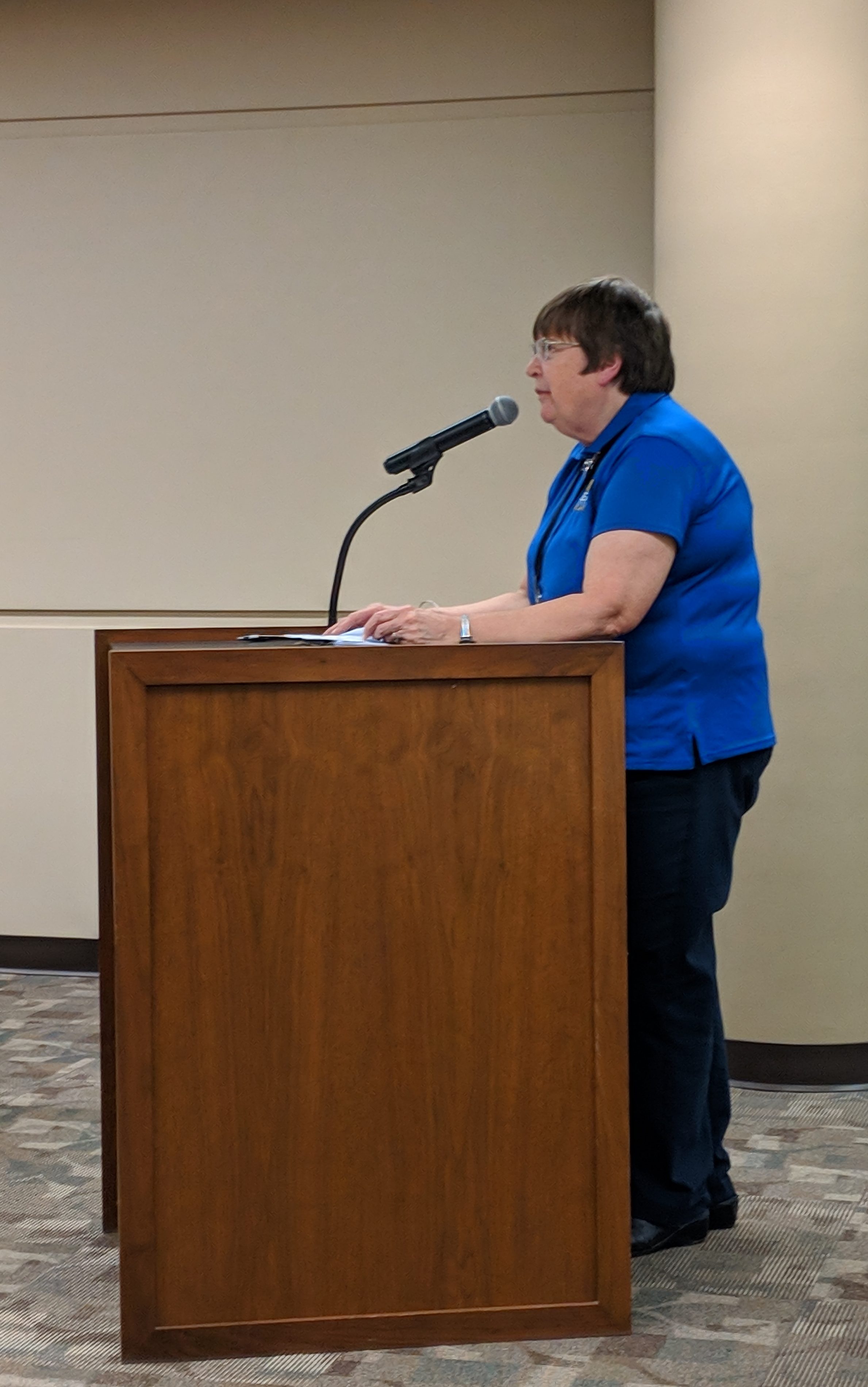By JONATHAN ZWEYGARDT
Hays Post
It took two weeks, a recount and two canvasses, but Republican Barb Wasinger has officially been declared the winner in the race for the 111th Kansas House of Representative District.
Members of the election board took most of the day Tuesday recounting paper ballots and checking results from the electronic voting machines before County Clerk and Election Official Donna Maskus presented the canvass board with results that showed Wasinger winning over Democratic Incumbent Eber Phelps by 35 votes.
The initial canvass had Wasinger winning by 32 votes.
The canvass board voted 2-1 to certify the results of the election.
Wasinger said she was thrilled that the results were certified twice by the canvass board.
“I’m proud to be elected to serve the 111th District for the state of Kansas,” Wasinger said. “It is important that I continued my positive campaign and didn’t get into the negative attacks that the other side had and I don’t think that’s necessary in this level of politics.”
Ellis County Sheriff Ed Harbin voted not to certify the results, while Commissioner Marcy McClelland and Mike Morley voted in favor of certification. Harbin and Morley were appointed to the canvass board after Wasinger and fellow commissioner and Wasinger campaign co-chair Dean Haselhorst recused themselves.

Harbin said after the meeting his uncertainty came from issues dealing with electronics.
Hays Attorney, and Phelps campaign representative John Bird raised several issues throughout the process and said after the meeting that a lawsuit is still an option they could use. He said they will determine the next step when they get all of the information they have requested from the county clerk.
Phelps was not present at the canvass.
On Tuesday, Bird claimed the 69 voting machines used in this year’s election were not reliable and said the election should have been carried out completely on paper ballots.
Bird said he doesn’t put the blame on the election issues with Maskus; instead, he puts it on the county commission because it has not provided the proper equipment.
“You have not provided the tools to the county clerk necessary for her to conduct a fair election,” Bird said. “The iVotronic machines that you are using have been found by the Ohio State and Penn State study, it’s called the Everest Study, to be inherently insecure, entirely hackable and they are not allowed to be used in any state, that I am aware of, now as a new machine.”
Bird said the machines, which are 12 years old, are not certified in other states and that they can be hacked easily.
“The Everest Study shows, clearly, that these machines are just not reliable,” Bird said. “They are capable of being hacked so easily that they’ve had 11-year-old kids demonstrate how you can do it with your iPhone.”
Bird also claimed the machines were not calibrated correctly, but Maskus disputed that notion.
“That is part of the testing and accuracy of each machine before the election,” said Maskus. “With the time change before the election, we had to set that and you do the calibration at the same time.”
Bird also raised issue with the difference in outcomes compared to the number of people who voted on paper as compared to the machine.
He claimed that because Phelps received 55 percent of the paper ballot votes the final tallied should have also show Phelps winning by that margin.
According to the final results, 905 people who voted on paper ballot voted for Phelps, compared to 748 who voted for Wasinger — a 157-vote advantage for Phelps or 55 to 44 percent.
But the people who voted using paper ballots made up only 19 percent of the voters. Nearly 7,000 people voted using the electronic machines in advance or at the polls.
Wasinger received 3,535 votes from people using the electronic voting machines while Phelps received 3,336 votes on the machines. Giving Wasinger a 199 vote or 51 to 49 percent advantage in that category.
Results from other races also showed that Republicans had an advantage when it came to the number of people who voted using the electronic voting machines in Ellis County.
In the race for governor, Kris Kobach got 61 more paper ballot votes than Laura Kelly, but after the electronic ballots were tabulated, his advantage grew to 553. Kobach received 53.6 percent of the electronic votes.

Republican Scott Schwab received 59 percent of the electronic ballots cast in Ellis County in his race for secretary of state against Democrat Brian McClendon.
In every contested race in Ellis County, the Republican’s advantage grew when the electronic ballots were cast.
Maskus said the iVotronic machines have been certified to be used in Kansas and Ellis County, and she said she talked with the secretary of state’s office several times about the election and the recount.
When asked by Jonathan Ehrlich, the attorney representing the Kansas House Republican Campaign Committee, if she was “totally confident” that the recount is totally accurate to the best of the ability that you have and the machines have and certified by the state of Kansas, she replied “Most definitely.”
Ehrlich said, “You should certify this recount as affirming the results that were already certified the other night, that this election is over and that the 111th District elected Barb Wasinger.”
